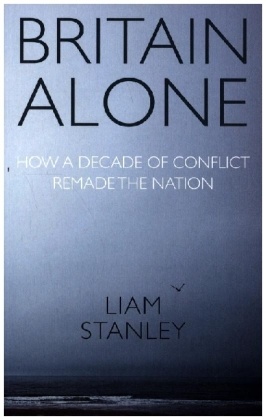
Britain alone - How a decade of conflict remade the nation
| Verlag | Manchester University Press |
| Auflage | 2022 |
| Seiten | 272 |
| Format | 17,7 x 1,8 x 22,1 cm |
| Paperback | |
| Gewicht | 320 g |
| Artikeltyp | Englisches Buch |
| EAN | 9781526159205 |
| Bestell-Nr | 52615920UA |
Ten years after it was initiated, this book provides the definitive account of the 'age of austerity' from high politics to everyday life and how it is permanently altering British society. It shows how scarcity in the name of national survival is intensifying social conflict over who gets what, when, and how which stokes impulses to protect the nation and its people.
When Britain left the European Union in January 2021, it set out on a new journey. Shorn of empire and now the EU too, Britains economy is as national as it has ever has been. A decade or so since globalisation seemed inevitable, this is a remarkable reversal. How did this happen?Britain alone argues that this nationalisation aligning the boundaries of the state with its national peoples emerged from the 2008 global financial crisis. The book analyses how austerity and scarcity intensified and created new conflicts over who gets what. This extends to struggle over what the British nation is for, who it represents, and who it values.Drawing on a range of cultural, economic, and political themes immigration and the hostile environment, nostalgia and Second World War mythology, race and the left behind, the clap for carers and furloughing, as well as Superscrimpers and stand-up comedy the book traces the complex nationalist path Britain took after the crash, demonstrating how we cannot explain nationalism without reference to the economy, and vice versa.In analysing the thread that ties the fallout of the crash and austerity, through Brexit, and to the shape of lockdown politics, Britain alone provides an incisive and original history of the last decade of Britain and its relationship to the global economy.
Inhaltsverzeichnis:
Introduction1 A nation in debt2 Nostalgic visions3 White Britain4 From exclusion to inequality5 In or out6 Unleashing Britains potential7 Locked downConclusion AcknowledgementsNotesIndex
